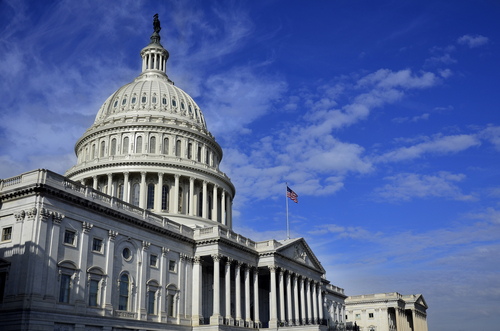A bipartisan group of House members has called on the Securities and Exchange Commission (SEC) to withdraw its open-end fund liquidity risk management and swing pricing proposal, citing the potential harm it could do to the millions of retirement savers who invest in mutual funds.
 In a letter to SEC Chairman Gary Gensler, Reps. Brad Sherman (D-CA) and Ann Wagner (R-MO)—both senior members of the House Financial Services Committee—were joined by 36 of their colleagues from both parties urging the withdrawal of the regulatory proposal.
In a letter to SEC Chairman Gary Gensler, Reps. Brad Sherman (D-CA) and Ann Wagner (R-MO)—both senior members of the House Financial Services Committee—were joined by 36 of their colleagues from both parties urging the withdrawal of the regulatory proposal.
“We write today to voice our concerns with the SEC’s open-end fund liquidity proposal (RIN 3235-AM98), given its potential to harm retail investors and retirement savers,” the lawmakers write, adding that a “diverse array of market participants have questioned the need for the proposal and expressed concern with its potential to increase costs, reduce returns, and limit choice for millions of investors.”
Two-Tiered Market
The proposal, first released in November 2022, would require an open-end mutual fund to adjust its NAV so the transaction price effectively passes on costs stemming from inflows or outflows to the investors engaged in that activity rather than diluting other shareholders. It also would require a “hard close” for the fund, such that an investor’s order to purchase or redeem shares would be eligible for a given day’s price only if received before 4:00 p.m. (ET).
The letter contends that, without clear evidence to support the rationale behind the proposal, the purported benefits are speculative, and that there is widespread agreement that the proposal will cause harm.
The clearest example, the lawmakers note, is the proposal’s requirement that mutual funds implement “swing pricing” and a “hard close” on trade placement. If adopted, this would require the majority of individual investors to place trades several hours earlier than a mandated 4:00 p.m. (ET) deadline. As such, implementing a hard close on mutual fund orders would require retail investors to submit their orders well in advance to receive that day’s price—a significant disadvantage for those living in the Pacific Time zone who may have to submit orders as early as 9:00 a.m. (ET) to receive that day’s price.
“This fundamental change to mutual fund operations would create a two-tiered market that would disadvantage retail and retirement investors. Forcing investors to accept the next day’s price for trades placed after their intermediary’s cut-off time would limit the investor’s ability to react to shift in the market on any given day,” the House lawmakers emphasize.
ARA Opposition
These concerns echo those of the American Retirement Association in its earlier comment letter to the SEC. “The ARA has serious concerns about the Hard Close and its impact on DC Plans and participants,” American Retirement Association CEO Brian Graff and General Counsel Allison Wielobob wrote to Gensler at the time. Not only would mandating a hard close require a complete overhaul of intermediaries’ systems and processes, vastly increasing costs to participants, “it would create inequities among investors in open-end fund and eventually, increased flows of investor money into less-regulated vehicles and potentially, a push for many asset managers to create alternative funds instead,” they added.
The lawmakers further observe how the proposal is based on assumptions about the operation of open-ended funds that the “historical record contradicts.” For example, the SEC states that one of the proposal’s key objectives is to ensure open-end funds are better equipped to face stressed conditions, but the agency acknowledges that funds were, in fact, adequately prepared for the liquidity concerns that actually materialized in the markets during the pandemic.
“The events of March 2020 do not justify wholesale changes to mutual fund operations. Rather, they demonstrate the resilience of mutual funds and their ability to meet shareholder redemptions even during a time of unprecedented market volatility,” the lawmakers further argue.
Meanwhile, many are optimistic the proposal will, in fact, be dropped. Speaking July 25 at the NAPA D.C. Fly-In Forum, Securities and Exchange Commissioner Hester Peirce told delegates that she was hopeful the proposal would be tabled.
Adding fuel to the speculation was the SEC’s decision in July to abandon “swing pricing” requirements for money market funds; this move led industry pundits and professionals to predict the same fate for the proposed rule regarding open-end funds.
It’s also notable that the SEC has received bipartisan opposition to this proposal from Congress. In addition to the letter led by Reps. Sherman and Wagner, the chairs and ranking members of House and Senate tax-writing committees have expressed concerns with the proposal’s impact on retirement savers and retail investors.

